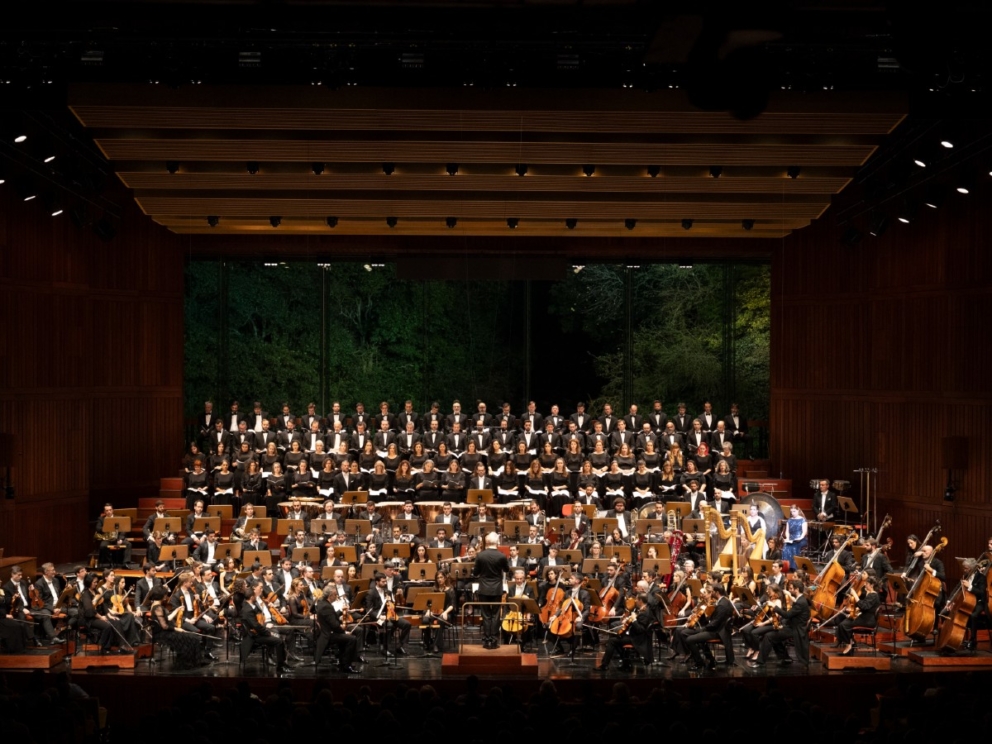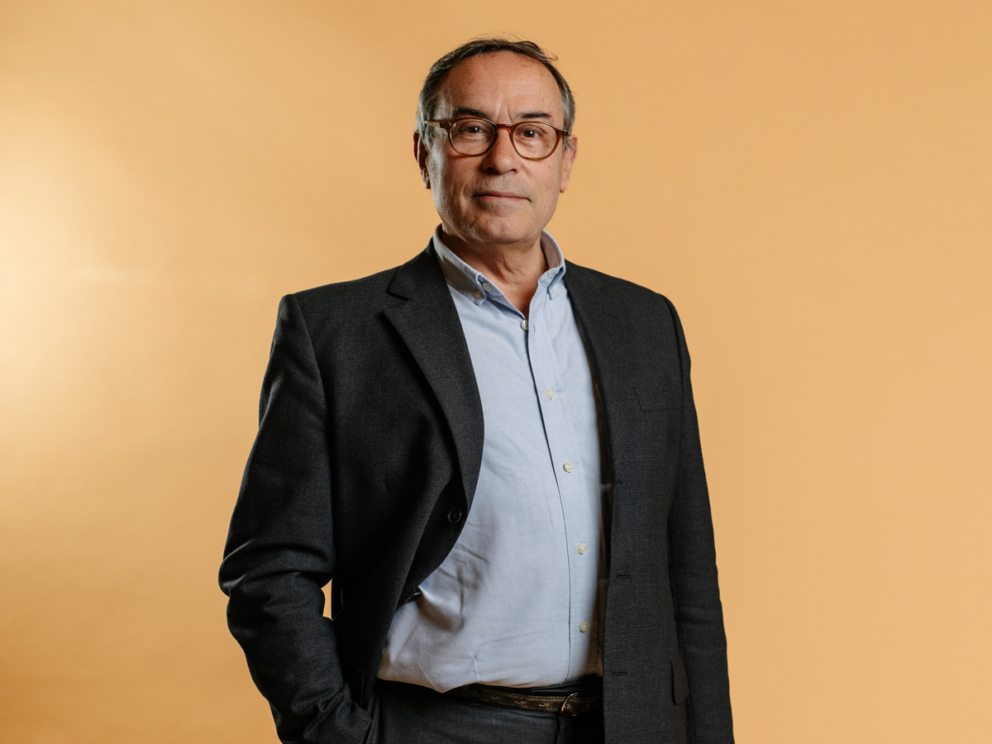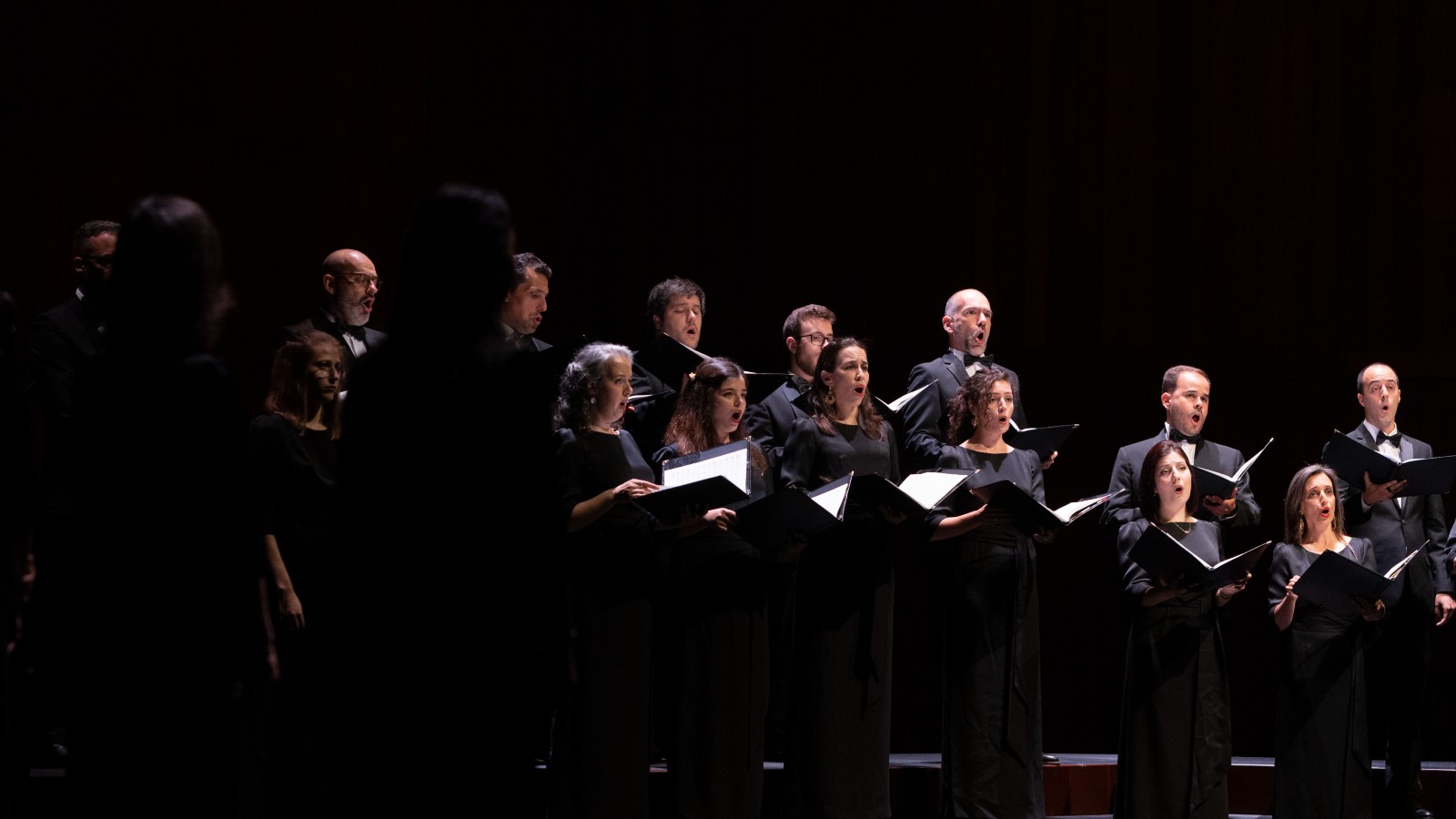Gulbenkian Choir a cappella
The Splendor of Choral Music
Event Slider
Date
- / Cancelled / Sold out
Location
Grand Auditorium Calouste Gulbenkian Foundation- Conductor
-

Gulbenkian Choir
Coro Gulbenkian was founded in 1964 by the Calouste Gulbenkian Foundation as a full symphonic body of around 100 singers. The choir joins the Orquestra Gulbenkian and other orchestras to perform Classical, Romantic and Contemporary choral-symphonic repertoire, but can also perform a cappella. It has performed – and often premiered – many 20th century works by Portuguese and international composers.
Coro Gulbenkian has been invited to collaborate with major international orchestras, under the direction of conductors such as Claudio Abbado, Colin Davis, John Nelson, Emmanuel Krivine, Esa-Pekka Salonen, Frans Brüggen, Franz Welser-Möst, Gerd Albrecht, Michael Gielen, Michael Tilson Thomas, Rafael Frübeck de Burgos, René Jacobs and Leonard Slatkin, among others.
Besides its regular season of concerts in Lisbon and frequent national tours, Coro Gulbenkian has repeatedly toured Argentina, Belgium, Brazil, Canada, Denmark, France, Germany, Hungary, India, Iraq, Israel, Italy, Japan, Macao, Malta, Monaco, Netherlands, Spain, the United Kingdom, the United States of America and Uruguay.
Coro Gulbenkian has recorded extensively for Philips, Deutsche Grammophon, Erato, Cascavelle, Musifrance, as well as FNAC-Music, performing a wide range of repertoire, from Early-Renaissance polyphony to Xenakis. Several of these albums received international awards.
Michel Corboz was the Principal Conductor between 1969 and 2019. Jorge Matta and Inês Tavares Lopes are currently the Associate and Assistant conductors, respectively.
-

Jorge Matta
Conductor
Jorge Matta holds a PhD in Historical Musicology from the Universidade Nova de Lisboa, where he taught in the Department of Musical Sciences.
An investigator, publisher and performer, he has been responsible for three hundred modern premieres of vocal and instrumental works by Portuguese composers and has given world premieres of works by Constance Capdeville, Jorge Peixinho, Fernando Lopes-Graça, Filipe Pires and Miguel Azguime. As an author and performer, he has also recorded series of TV programs such as "Música de Corte no Palácio da Ajuda" (1986), "Tempos da Música" (1988) and "Percursos da Música Portuguesa" (2008).
Jorge Matta participated in major music festivals in Portugal and abroad, and has conducted the Orquestra Gulbenkian, Orquestra Metropolitana de Lisboa, Orquestra Sinfónica da RDP (Portuguese radio), Orquestra de Câmara de Macau, Orquestra de Câmara de Lisboa, Orquestra do Norte, Filarmonica das Beiras, Collegium Instrumentale de Bruges, Bavarian Radio Choir and the Boston Arts Academy Choirs.
Recent International engagements include the preparation of Coro Gulbenkian for five performances of Richard Strauss' Elektra, conducted by Esa-Pekka Salonen and staged by the late Patrice Chéreau at the Festival de Aix-en-Provence, as well for concerts in Santiago de Compostela, Spain, with Real Orquesta Filarmónica de Galicia, and in Paris with Orquestra Gulbenkian.
His discography includes recordings with Coro Gulbenkian ("Canções Corais”, Filipe Pires; Libera me, Constança Capdeville; Opera Omnia, Diogo Dias Melgas; “Música Sacra”, Joaquim Casimiro Júnior; “Vilancicos negros, de Santa Cruz de Coimbra”; “Música Sacra, Pero de Gamboa e Lourenço Ribeiro”; “Fernando Lopes-Graça – Música Coral”; “Canções de Natal Portuguesas”), as well as with the ensemble Cantus Firmus and Orquestra de Câmara de Lisboa.
In 2000-2001 he was director of the Portuguese national opera theatre, Teatro Nacional de São Carlos. Since 2001, he is the president of the Comission for Evaluation of Regional Orchestras.
Diogo Dias Melgás
1.ª Lamentação de Quinta-Feira Santa
Josef Rheinberger
Cantus Missae (Kyrie, Sanctus, Benedictus, Agnus Dei)
Johannes Brahms
Warum ist das Licht gegeben dem Mühseligen
Josef Rheinberger
Drei Geistliche Gesänge, op. 69
Sponsor Gulbenkian Music
The Calouste Gulbenkian Foundation reserves the right to collect and keep records of images, sounds and voice for the diffusion and preservation of the memory of its cultural and artistic activity. For further information, please contact us through the Information Request form.
